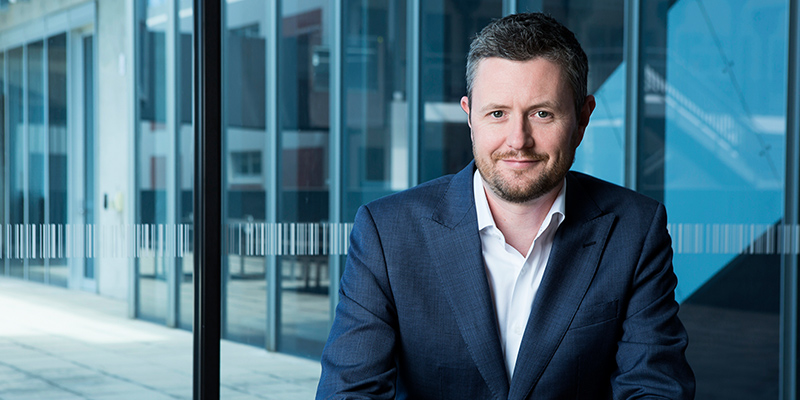From the Vice Chancellor
 INSIDE UNISA
INSIDE UNISASay what you will about pandemics, but they do give you an opportunity to reset. As devastating as this one has been to our colleagues and friends and especially our students caught outside our borders, the pause that the pandemic has caused in the way we live gives us time to rethink what it is we do and the impetus to reimagine our future.
A university’s role is to create knowledge through research and to disseminate that knowledge to our students. In the thousands of years that universities have been in existence, the biggest change came in 1224 when the University of Naples dedicated itself to a king and not a pope and secular education developed alongside religious teaching.
We’ve been tinkering around the edges ever since, broadening the curriculum, adding new knowledge, developing innovative new ways of teaching and, importantly, giving ourselves a wider remit by educating a new class of professional careerists to help develop the nation’s economic power.
Quite possibly the biggest change to the Australian university sector came with the Dawkins Reforms in the late 1980s when Colleges of Advanced Education were converted into universities and universities were made to justify their research and teaching with plans, budgets and statistics. The changes also brought in a new emphasis on collaborative ventures with business and industry, and that’s where UniSA got its strength. A mere 15 years after the Colony of South Australia was formed, we started teaching, first with the School of Art and then with several teachers training colleges but always, by maintaining our close links with our business and industry partners throughout, with a view to benefitting our community.
That’s not the part that needs rethinking. Universities of the 21st century are all responsible to their communities, to educate them and to improve their health and prosperity. We have, as a collective, the responsibility to educate the next generation of the professional workforce, about one million people per year in Australia.
And thanks to the drop-off in investment from corporate Australia into their own research and development, down to 24 per cent from 34 per cent a decade ago, we’re having to undertake the lion’s share of the nation’s research.
The hole that you see there – the engineering flaw that still threatens the Australian university sector – is where the money that came from international students has been flowing.
We need to fix that hole. We need to consider the future of research, teaching and learning and that’s where the respite that the pandemic has offered, is our opportunity.
This is a task that is now becoming more urgent as the federal government, as evidenced in the Budget, has retreated from outlining a path forward for the sector and supporting, for now, our role in job creation and economic innovation.
On one dimension, we are gearing up for a future that is being transformed by technology, both in the way industry operates and in the expectations our students have of us.
For years our teaching has consisted of face-to-face learning in lecture halls and tutorial groups, with practicums added at appropriate stages. But students now are mostly digital natives who get their information online. Wouldn’t they be perfectly comfortable continuing to learn that way? We shifted their studies online because of the pandemic but we have been very successfully operating in that online area since 2017 and so we know what we’re doing.
Enrolments to UniSA Online are up 55 per cent on last year and a large number of our international students have taken up online study in preparation for crossing back over the borders for their practicums. Is there any further that that can go?
The future of research lies in collaborations with industry partners, with other researchers and other institutions. Enterprise25 was our first major step towards breaking down the barriers between academic disciplines. Our new Enterprise Hub, co-created with our partners and our community, will drive that collaboration into the marketplace and open opportunities to develop the commercial potential of research, support startups, scaleups and business regeneration; and build our economy by providing access to investment opportunities in UniSA’s spin-out companies.
As you know, UniSA has always been unstoppable. We have always been the go-to university for career minded professionals. Now we plan on being the go-to university for businesses with ideas to perfect. We’ll be a magnet for bright ideas and the talented people who create them.
Professor David Lloyd
Vice Chancellor and President
PS Our job is made all the more difficult given the lack of support the sector received in the latest Budget, a document that doesn’t recognise universities’ critical contribution to job creation, particularly during the pandemic. While the economy is beginning to recover, the projected border closures mean the toughest years for international education are still to come.
Other Stories
- More sleep or more exercise: the best time trade-offs for children’s health
- Espresso, latte or decaf? Genetic code drives your desire for coffee
- More flexibility for students through plan to bring together research and teaching
- Industry goes ‘nuts’ for world-first almond grading machine
- From the Vice Chancellor
- Achievements and Announcements
- UniSA makes healthy choices easier for staff and students
- Graduate puts second chance education in focus
- Three decades at UniSA: staff member proves she’s ‘unstoppable’
- Researcher calls for change to dominant view of 'good mothering'
- Elders in Residence embedding Aboriginal knowledges and cultures at UniSA
- Bradley Building dedicated in celebration of champion of education
- Australian-first partnership helps veterans harness their health through sport
- The latest books from UniSA researchers
- In Pictures: UniSA graduations, Bradley Building dedication & school sport




